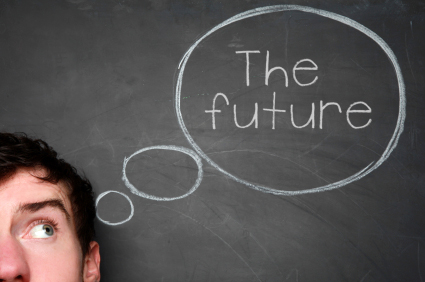
change not by persuasion, but inspiration,
not by appeal, but by personal change
– Seth Lievense
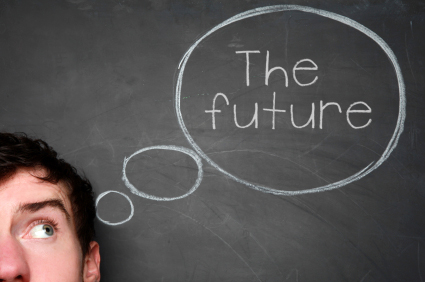 Crisis after crisis: ecological, social and economical. It would almost get you dispirited. As a lecture earlier this year reminded me however, crisis originally also means ‘turning point’. And with our current scientific and technological progress as basic idea and starting point, it shows us we can overcome the problems of our time and en passent bypass government and the market. A turning point to a more social, more liberal and more sustainable society ís possible, the future is ours to create.
Crisis after crisis: ecological, social and economical. It would almost get you dispirited. As a lecture earlier this year reminded me however, crisis originally also means ‘turning point’. And with our current scientific and technological progress as basic idea and starting point, it shows us we can overcome the problems of our time and en passent bypass government and the market. A turning point to a more social, more liberal and more sustainable society ís possible, the future is ours to create.
Unplanned free time gives space to creativity and the discovery of our passions. Along with some guidance and structure it brings us the possibility to develop on a social, cultural, artistic, technological or scientific level. These enrich our society and bring us innovation and progress. Nevertheless, the way our society is organised we get the feeling societies expectations holds us back. Money seems to be a more and more decisive factor in our decision making -be it private, as small business or as government. Does Technological Decentral Abundance (TDA) offer a way out? Let’s start off with three examples.
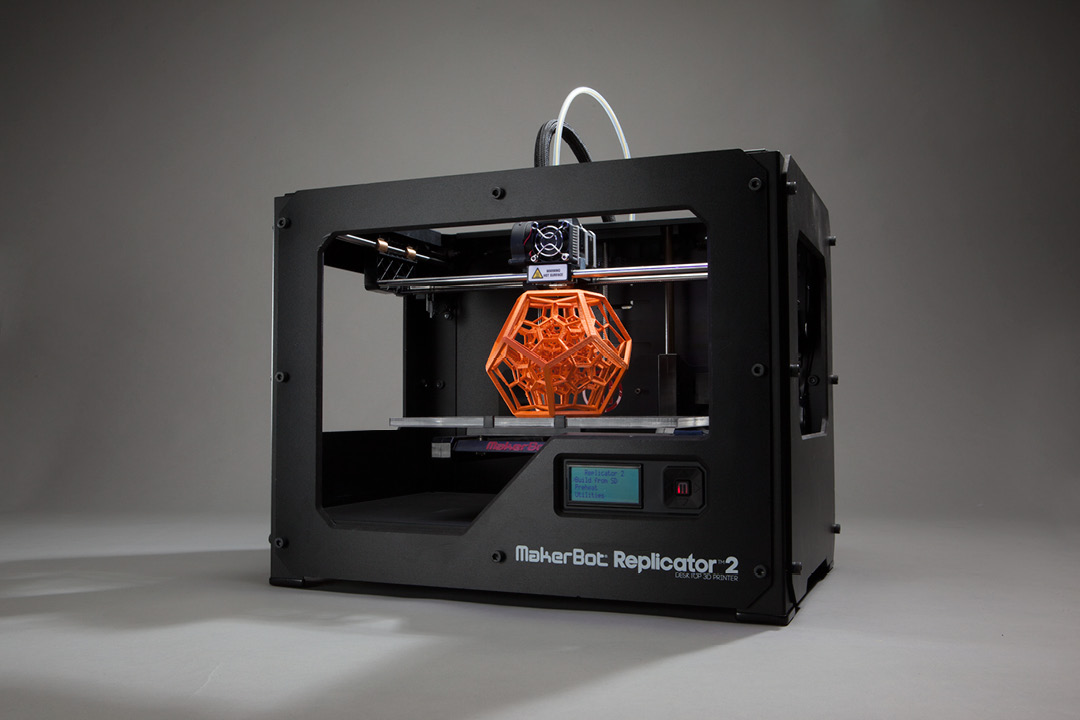 The first desktop 3D-printers are already arriving in households worldwide. The developmental costs of this new technology will -as any new technology- go down exponentially and plastic as a resource is already slowly making room for other more sustainable resources. Soon you’ll be printing your own products at home and that will change your world. Why buy a screw driver if you can print it yourself? Grown out of your super trendy croqs? Pulverize them, collect some plastic litter off the street, download your size of the internet and print! And why still use your hard earned money for a brand name when there is a whole scala of free, creative designs online? Or, why not get that handy design student to bring over his laptop and make your creative idea become reality? From lungs and hearts to houses, it’s being 3D-printed as you read.
The first desktop 3D-printers are already arriving in households worldwide. The developmental costs of this new technology will -as any new technology- go down exponentially and plastic as a resource is already slowly making room for other more sustainable resources. Soon you’ll be printing your own products at home and that will change your world. Why buy a screw driver if you can print it yourself? Grown out of your super trendy croqs? Pulverize them, collect some plastic litter off the street, download your size of the internet and print! And why still use your hard earned money for a brand name when there is a whole scala of free, creative designs online? Or, why not get that handy design student to bring over his laptop and make your creative idea become reality? From lungs and hearts to houses, it’s being 3D-printed as you read.
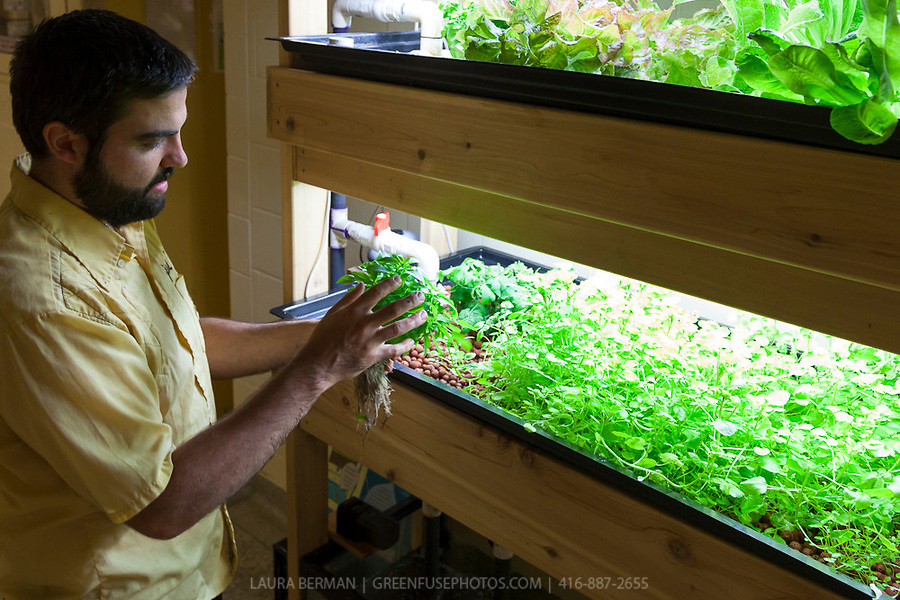 Or aquaponics, the agriculture of the 21st century. And right in the city centre. Install two growth beds on top of your aquarium, pump the water to the top bed and let it flow down through the other beds back into the aquarium. The excrement of the fish are the mineral-rich food for the fast growing plants and the plants give back purified, clean water for the fish. Not only does it save 80% water in comparison to traditional farming, the use of hydro grains instead of ground makes its maintenance minimal. Your own fresh vegetables and for who’s keen on it, some healthy fish every now and then. This new development hasn’t slipped the mind of small businesses, the first entrepreneurs are already buying up empty office spaces to convert them in aquaponics. Until recently, this was not feasible due to the high costs of electricity for lighting. Recent developments in LED-lighting and the developments in solar energy are changing this rapidly.
Or aquaponics, the agriculture of the 21st century. And right in the city centre. Install two growth beds on top of your aquarium, pump the water to the top bed and let it flow down through the other beds back into the aquarium. The excrement of the fish are the mineral-rich food for the fast growing plants and the plants give back purified, clean water for the fish. Not only does it save 80% water in comparison to traditional farming, the use of hydro grains instead of ground makes its maintenance minimal. Your own fresh vegetables and for who’s keen on it, some healthy fish every now and then. This new development hasn’t slipped the mind of small businesses, the first entrepreneurs are already buying up empty office spaces to convert them in aquaponics. Until recently, this was not feasible due to the high costs of electricity for lighting. Recent developments in LED-lighting and the developments in solar energy are changing this rapidly.
Another piece of powerful technology, the solar panel. The ever faster payback time by higher efficiency and lower production costs push the scarcity of finite oil out of the market and bring the costs for energy continuously down further and further until the technological production costs are what is left.
These developments in Cleantech bring us what the American economist Jeremy Rifkin calls ‘the third industrial revolution’. And where once the art of printing on paper led to the scientific revolution then enabling the industrial revolution, the internet will be the means of communication that will herald the third industrial revolution.
The technology of the industrial revolution brought us machines and replaced heavy labour with what we now call the service industry. The inequality that came with the arrival of these machines and the industrialisation would be solved politically. Political parties came into existence that would distribute the scarcity. With all-equal-communism on the one side and winner-takes-all-capitalism on the other, the struggle of the distribution issue broke loose. The current apparatus of governing institutions we have, the current way of organizing our society, was born.
Technology however now once again shows us the untenability of our current way of organising society. Technology is replacing the service industry: the jobs are not coming back. This technological unemployment shows us the untenability of a system that needs the consumer to keep the circle between employer-employee-consumer going.
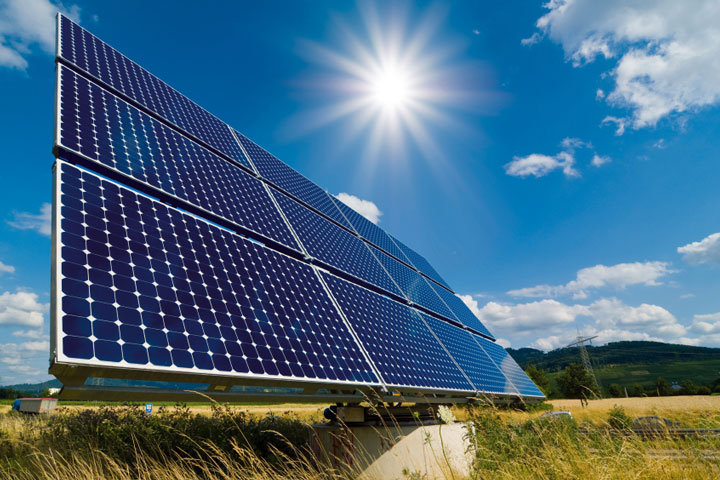 Technological progress raises even more fundamental questions on how to organise society. The previously mentioned technologies, 3D-printers, aquaponics and solar panels characterise in the ability to decentralisation and provide abundance on a local level. This technological decentral abundance (TDA) combined with the ever progressing developments in more sustainable production and usage of resources form a radical break with how we have thusfar organised the world. A solar panel not only provides national or regional autonomy, but also individual autonomy. Just as printing your own sweater or cutlery gives individual autonomy, so is regional autonomy given by printing a new table at the community print centre/local specialist. And ecological, reliable food is provided from the aquaponics of communities or local counties, strengtening local economies.
Technological progress raises even more fundamental questions on how to organise society. The previously mentioned technologies, 3D-printers, aquaponics and solar panels characterise in the ability to decentralisation and provide abundance on a local level. This technological decentral abundance (TDA) combined with the ever progressing developments in more sustainable production and usage of resources form a radical break with how we have thusfar organised the world. A solar panel not only provides national or regional autonomy, but also individual autonomy. Just as printing your own sweater or cutlery gives individual autonomy, so is regional autonomy given by printing a new table at the community print centre/local specialist. And ecological, reliable food is provided from the aquaponics of communities or local counties, strengtening local economies.
The globalised world of banks and multinationals seems -and ís- far removed from our personal everyday lives. TDA gives back the breathing space for the real economy, for small businesses and passionate crafts- and tradesman on a local level. On a more fundamental level TDA undermines the power structures of scarcity. The real or fictive scarcity out of a need for profit that are delivered to us by the game rules of the monetary market -as the political institutions to distribute this scarcity- have been overcome. The more scarce, the higher the price. The more technological sustainable abundance in a decentralised way, the cheaper our existence on this earth will become. The top-down power of money makes way to given power that is earned in respect. By locally being self-sustainable with these technologies we will enter an age of abundance and cooperation. Money as an expression of scarcity will be needed less and less to sustain in our (basic) needs. Money itself can be decentralised with cryptocurrencies and data via blockchain. Freedom will once again be measured in time and autonomy, instead of purchasing power.
A truly liberal, social and sustainable future comes from the human progress in science, technology and the arts, not from the leftwing, rightwing or the market. And when the solutions are not to be found within the workings of our current model of organising society, it might become time to look at each other instead of up. It is up to YOU to shape the future, here and now.
The world is yours to create.

Leave a Reply